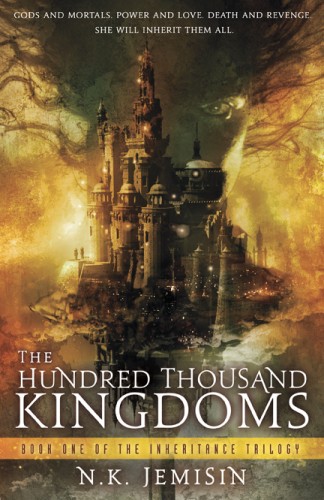 Ari Marmell’s been around the writing scene for years, but his name only hit my ears with the release of The Conquerer’s Shadow, his first work outside the world of Pen & Paper RPGS and tie-in Novels.
Ari Marmell’s been around the writing scene for years, but his name only hit my ears with the release of The Conquerer’s Shadow, his first work outside the world of Pen & Paper RPGS and tie-in Novels.
The Conquerer’s Shadow is a twist on the genre, throwing the reader into the story alongside a former ‘evil lord’-type and challenging them to re-consider what it means to be a protagonist… and a hero.
Intrigued by Marmell’s take on the genre, as well as his experience with the under-explored world of tie-in fiction, I gathered him up and ran him through my gauntlet of questions. Did he survive? Read on and find out.
The Interview
Ari! Welcome to A Dribble of Ink! Anything you’d like to say to set the tone?
To set the tone? F-sharp major.
Or possibly just thanks for having me here.
Okay, I gotta get this one out of the way early. Blake Charlton can be found at blakecharlton.com. Neil Gaiman can be found at neilgaiman.com. Paul Kearney, predictably, can be found at paulkearney.com. Starting to see a trend? Ari Marmell can be found at… wait, mouseferatu.com?
What’s the deal with Mouseferatu?
Way back in ’99 or thereabouts, I was looking for a handle to use on the White Wolf forums. I came up with “Mouseferatu, Rodent of the Dark” pretty much on a lark. But that’s how I became known on the forums, so when I started freelancing for White Wolf, it just sort of stuck. Once I’d had the name on various forums and the e-mail, I just figured I’d run with it, make it sort of a “brand.” (The awesome logo that my friend Chung-Mau Cheng designed certainly helped, too.)
But if people find it less confusing, you can also get to the site by typing in www.arimarmell.com. I’m easy.
Speaking of the online world, social networking sites like Facebook, Twitter and the blogosphere have changed the way fans interact with their favourite authors, blurring that mystical line that used to separate the two except at conventions and readings.
What sort of effect has this had on your writing career? Does it make the job easier or more difficult?
Hmm. Some of each, if I may be allowed a wishy-washy answer.
I enjoy interacting with fans. It adds a level of immediacy to the process, it can be a lot of fun, and it reminds me constantly that, hey, there are actual people who are part of this great amorphous mass that we call “the market.” It’s a reminder of one of the main reasons I do this (the other reason being that I love doing it, and pretty much suck at everything else). And it helps me improve; when it’s offered thoughtfully, I really do try to pay attention to criticism, and if I find it contains valid points, to learn from it.
But it can also be distracting. It’s very easy for a writer—especially a neurotic one, like me—to get so wrapped up in the social networking that it takes time from the actual, y’know, writing. And it’s very easy for us to forget that the people online still represent only a portion of the audience; we can easily get a swelled head from the kudos, or be seriously discouraged by the complaints.
Given the choice between having it or not having it, I’m really glad it’s there. But like everything else, it requires a strong sense of moderation (something I’m still working on).
Read More »






